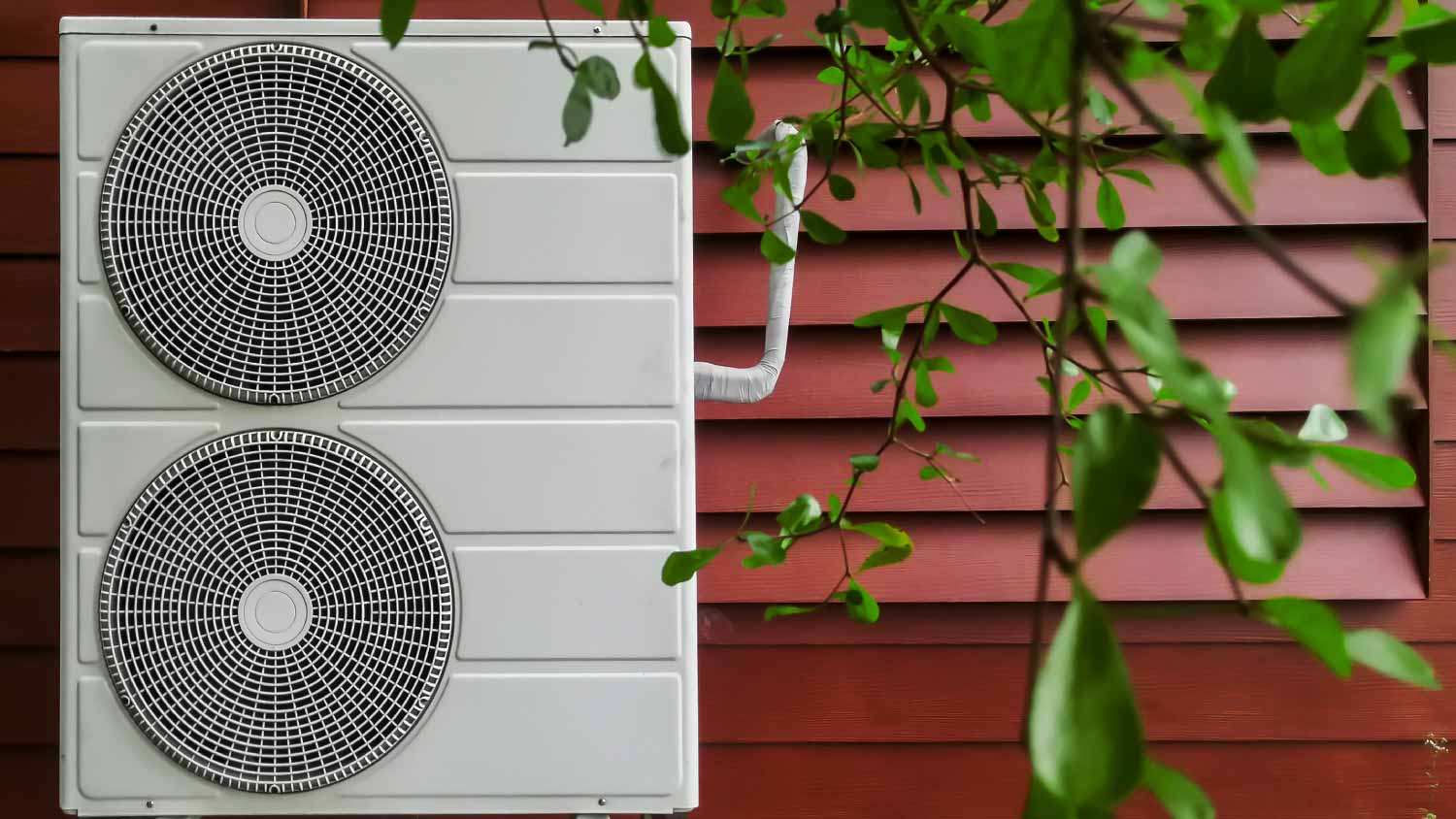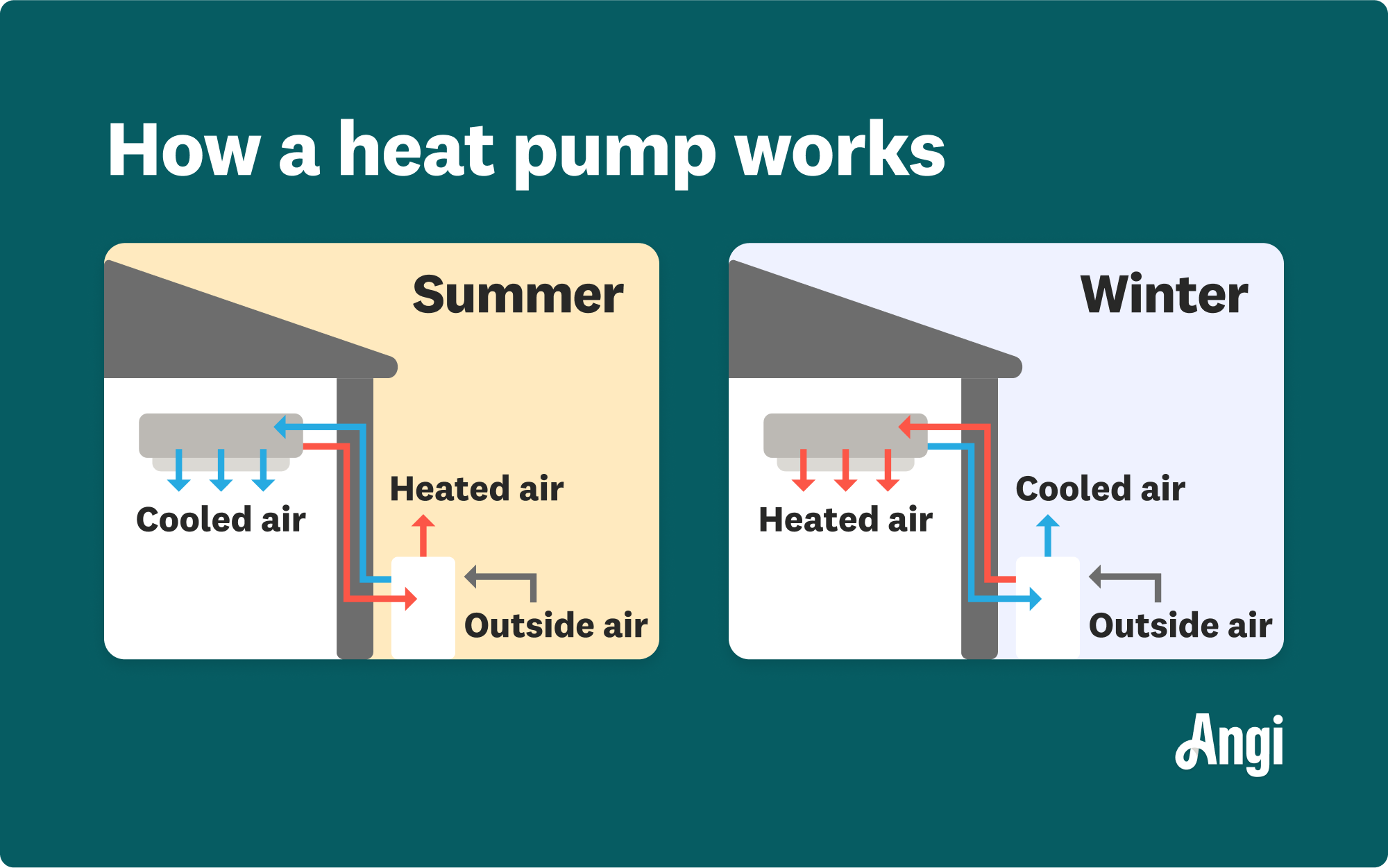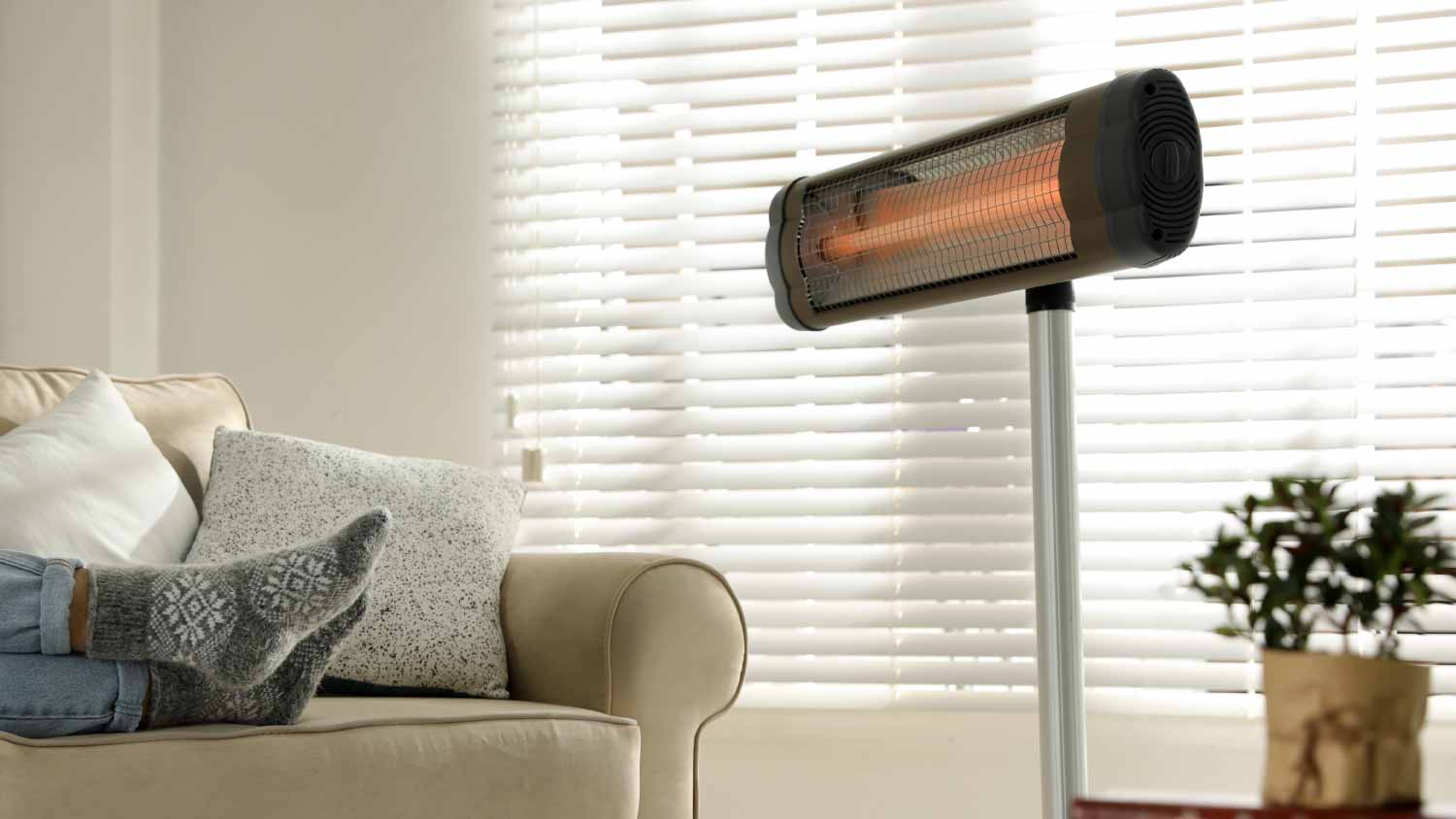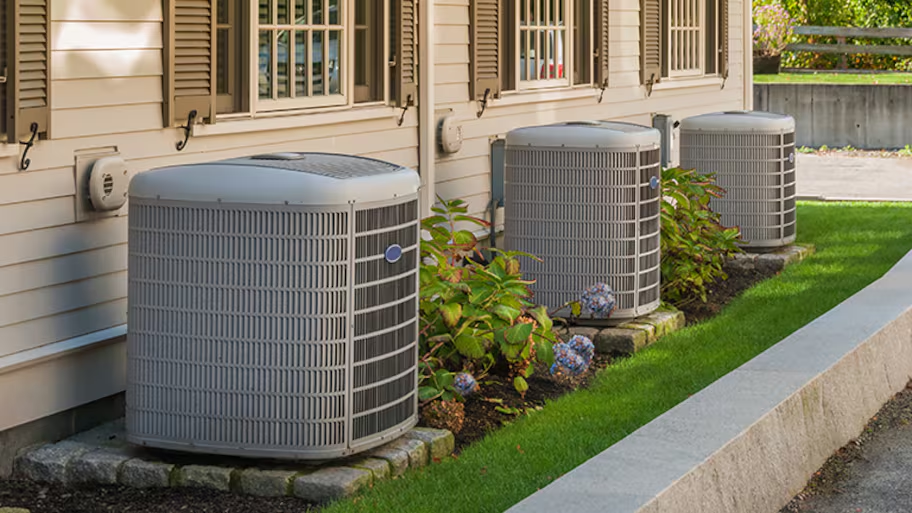
What you’ll pay in Columbus, OH, for furnace repairs depends on many factors. Here’s a breakdown of what can go wrong and the cost to fix those issues.
Heat pumps are are hot among homeowners for their efficiency


Heat pumps cool your home and provide heat using electricity.
Depending on the type, heat pumps have a lifespan of 15 to 25 years.
While costly upfront, heat pumps’ efficiency lowers utility bills.
Heat pumps have a far lower carbon footprint than gas furnaces.
Heat pumps can be used in every type of home, old and new.
Heat pump technology has been around for decades, but as energy prices have increased in recent years, they’ve become more popular than ever before. But is a heat pump worth it?
These devices help homeowners save more money on utility bills than conventional furnaces and boilers. However, retrofitting an HVAC system for a heat pump can be extremely costly. Let’s break down the pros and cons of heat pump technology so you can make an informed decision when heating and cooling your home.
Whether you’re adding a heat pump to an existing or brand-new home, it’s best to hire a professional heat pump installer for this task. A pro will have the right tools, skills, and experience to ensure this essential appliance is set up accurately and efficiently.

As part of an HVAC system, a heat pump provides heat during the winter and cools your home during the summer. In winter, it pulls heat from the cold air outdoors and transfers it inside. During the warmer months, it pulls heat from the warm inside and brings down the temperature.
Heat pumps are powered by electricity and transfer heat using refrigerants, similar to an air conditioner. Since heat pumps have the ability to both heat and cool a home, separate systems are typically unnecessary.
Wondering which type of heat pump to install? According to Angi data, 66% of customers have an air-source heat pump, making it the most popular among homeowners. Other common types of heat pumps include water source and ground source.
Talk with your heat pump installer about the best choice for your home.

Heat pumps offer many benefits to homeowners, including:
Because a heat pump is capable of both heating and cooling a home, homeowners often consider upgrading from having separate systems. No matter the season, this one piece of HVAC equipment will keep your home comfortable all year long.
Gas furnaces carry the risks of carbon monoxide poisoning and gas leaks. Heat pumps run on electricity, so they don’t have the potential for those dangerous issues. With no flames or fumes, these systems are one of the safest types of HVAC equipment.
Installing a heat pump lowers your carbon footprint as they lack fossil fuel emissions. They also work well with solar panels in lowering environmental impact.
A heat pump can dramatically lower your utility bills. Since it’s more efficient than a traditional system, you use less energy to maintain your home’s desired temperature. This benefit is particularly noticeable during peak seasons like winter and summer when demands in heating and cooling are highest.
A furnace produces intensely hot air, but heat pumps do not. This results in longer run cycles, which reduces temperature fluctuations that are sometimes seen with single-speed furnaces. Conditioned air also has more time to circulate.
The longer a heat pump runs, the more airborne pollutants it traps in the HVAC filter and improves the overall air quality of your home.
There are some disadvantages to heat pumps to consider:
Heat pump systems are complex—units and installation are more expensive in comparison to air conditioners. A heat pump costs $4,235 to $7,900 to install, depending on the size and type. However, by replacing your air conditioner and furnace at the same time, you may save money, and the amount you save on utility bills over time may make the cost worth it.
When it's extremely cold, heat pumps can be less efficient at colder temperatures, as they need to work harder to produce warmer air. Cold-climate pumps are fully efficient in temperatures down to 5°Fahrenheit.
Heat pumps have longer run cycles which, while beneficial, can make areas closer to the vents feel drafty as lower temperature air flows in. Monitor temperature fluctuations in these areas and consult a heat pump repair professional if it becomes a major concern.
With longer run cycles, the heat pump’s fan and compressor run more often, and their operating noise is more evident. Make sure the heat pump you choose has a low noise rating and install any outdoor equipment away from windows and doors.
Gas furnaces last much longer than heat pumps. Air-source heat pumps last up to 15 years, while geothermal heat pumps have a lifespan of up to 25 years. Hiring a heat pump professional near you to service your system regularly can eliminate the problems and extend its lifespan.

If you are looking to change your heating system, but are unsure that a heat pump is for you, there are plenty of alternatives to consider.
Electric boilers produce zero emissions and are highly efficient. There are few moving parts and no external flues, which makes maintenance easier in comparison to heat pumps. Professional installation is also simple and can be completed in a few hours.
Modern electric radiators are not like the cumbersome radiators from half a century ago. They're an effective and efficient way to heat a home and may come with individual thermostats you can program to your liking.
Infrared heaters deliver heat through thermal radiation. Their rays travel through the air, and as they touch surfaces, they release heat energy, no matter the surrounding air temperature.
Heat pumps can be installed just about anywhere on your property, whether you live in an older home or a new one. This type of system works well in nearly every type of residence, including single-family houses, townhouses, condos, and apartments. A HVAC contractor in your area can help you find the best location for your heat pump, decide which type of pump is best for your home, and install the unit.
From average costs to expert advice, get all the answers you need to get your job done.

What you’ll pay in Columbus, OH, for furnace repairs depends on many factors. Here’s a breakdown of what can go wrong and the cost to fix those issues.

If your furnace is malfunctioning, it could be a faulty control board. Find out what a furnace control board replacement costs for parts, labor, and more.

HVAC replacement costs depend on a lot of factors, like unit type, size, and labor. See what you can expect to pay for HVAC replacement here.

An icy coil can create costly AC repairs. Learn what to do if the evaporator coil freezes to ensure your HVAC system operates efficiently.

What size heat pump do I need? Learn the various heat pump sizes and how to calculate which size is best for your home.

Figuring out how to eliminate ductwork noise may require anything from replacing the ducts to changing the filter. Learn more about fixing this issue.